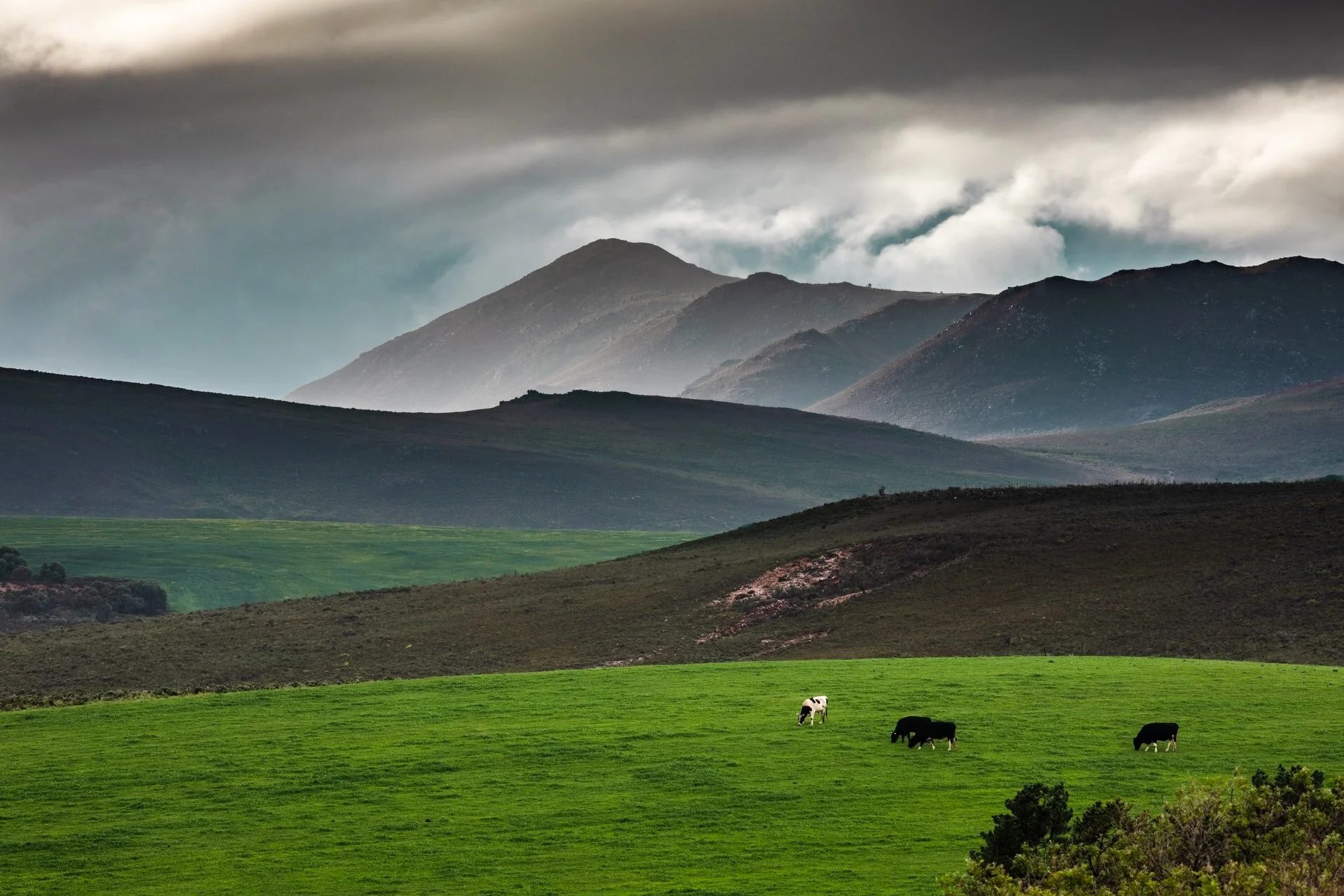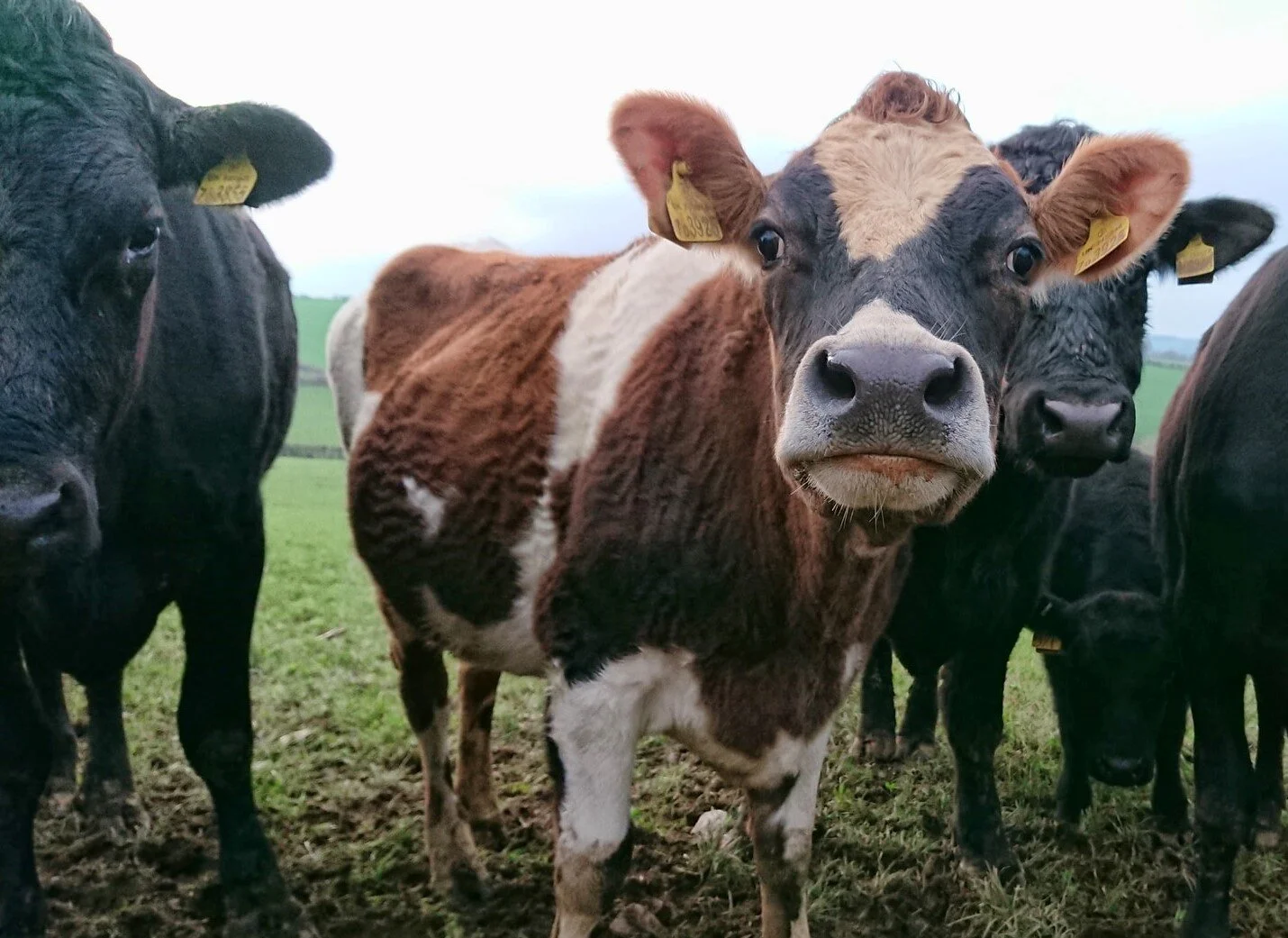By Jessica Scott-Reid
Jessica is a Canadian writer, animal advocate and plant-based food expert. Her work appears regularly in media across Canada and the US.
After years of bad press, being positioned as one of the main culprits of climate change, it appears cows – particularly those who graze on grass -- may be making a comeback. It is the hope of those who profit from them that the long-villainized cow may actually be the answer to the issue of greenhouse gas emissions and soil depletion, through their ability to graze, poop, and draw carbon into the soil. It is part of an agricultural system that seeks to go beyond simply sustaining the current state of things but rather to set back the clock on climate change. As a result of the regenerative agricultural movement, many-a-meat-eater are now sighing with relief that their local grass-fed beef burger may actually be helping the earth, not killing it.
But is this really the case?
Regenerative agriculture, particularly that which includes the use of domesticated cows for holistic grazing, has become a topic of mounting popularity among farmers, environmentalists, and some animal welfare advocates. It is also a topic that has been hijacked by big-ag corporations, fast food companies and some of the pro-meat crowd as a reason to say “See, we do need to eat cows!” The recently released documentary Kiss the Ground, directed by Josh Tickell, has added weight to this school of thought, presenting a dire dystopia of monocrops, depleted soils and factory farms, juxtaposed against a future of lush pasturelands, carbon drawdown, and of course happily grazing cows.
But as was recently discussed on The Plant Proof Podcast, hosted by nutritionist Simon Hill, and environmental researcher Nicholas Carter, this one-or-the-other scenario presents a troubling false dichotomy. While the documentary’s main focus rightly explains how soil health is critical to sustainable farming, a lack of discussion in the film about the benefits of shifting to a plant-based diet or veganic regenerative farming, only helps bolster this deceptive dilemma.
In the film’s framing of pasture-raised beef as not only a solution, but very much the solution to current soil and climate woes, Carter wonders how the issue of land use could have been so ignored. On the podcast he points to the work of Prof. Matthew Hayek of New York University on traditional grass-fed beef, stating, “if Americans were to not alter their beef consumption, US beef production would require 63 to 270% more land to match current factory farmed beef.” Thus, he adds, to switch current beef production to all pasture-based, “there is no evidence at all that this is even possible without massive scale deforestation. And we don’t want that.”
In addition, several studies including one by Oxford University and a study done by Hayek when he was at Harvard University, have shown that grass-fed beef produces higher emissions than conventional beef production and is not a climate solution.
Photo: Marc Pell on Unsplash
Carter makes it clear that agriculture on its own cannot reverse climate change, "but we do need to eat, so how do we feed everyone healthy diets, produce it in a way that causes the least amount of harm, and can be done regeneratively and sustainably for a long time?” The evidence, he says, points to reducing land use, not increasing it.
Part of the regenerative ag movement that Carter says can be damaging is that “it’s almost saying that you can just take the cows we have right now and put them on pasture and they’ll be fine. [The filmmakers] are not saying [we need] a reduction in the amount of cows farmed; they’re not saying [we need] a reduction in the amount of animal foods consumed; they’re not saying that message that needs to be communicated to be even close to what the evidence shows.” Rather, by focusing on the benefits of grazing cows, he worries “people will say they want to eat local grass-fed beef to help the environment, but there is just no evidence to back that up.”
According to both Carter and Hill, another major point missed by Kiss The Ground is the evidence-based fact that it is the types of foods we eat that have the greatest impact on the planet, rather than how our foods are grown. “The only way you’re going to achieve any sort of regenerative diet is by a massive switch to plant-rich diets,” says Carter, and messaging about holistic grazing being better than factory farming, for the soil and for the planet“ needs to come with the prerequisite of shifting to a plant-based diet.” This is the central tenet of the authoritative EAT-Lancet Commission’s Planetary Health Diet which says a radical reduction in meat consumption in the developed world is essential to help meet the Paris climate goals.
Regenerative agriculture, Carter explains, is not only about soil health and holistic grazing, as the documentary may have viewers believe. It is also about rewilding forestland, wildlife conservation, agroforestry, and the production and use of green/animal-free manure. "Cows," says Carter, "are not the silver bullet."
In a conversation about the film, vegan regenerative farmer Melissa Hoffman says, “It's time to strategically reclaim ‘regenerative’ as plants and wildlife.” Hoffman is the co-owner of SHO Farm and Sanctuary in western Vermont, where she and her partner are committed to aiding in the restoration of local wild ecosystems and habitats through agroforestry and perennial agriculture, and what she calls “wildlife integrated food systems.” They have also integrated a flock of rescued ducks to help fertilize and aerate the soil, and for pest control.
Composting the manured hay from the ducks’ barn, says Hoffman, also attracts worms, “creating the most amazing compost for humic acid, and humus in the soil,” which she calls “invaluable.” The ducks will live on the property indefinitely, never to be sent to slaughter, positioning Sho Farm as an example of successful regenerative farming without any need for (or eventual slaughter of) ruminants at all. While this model is not scalable in the short term, it’s a trail-blazing concept that can be part of the solution.
Cows have never been the solution to the climate change story, but rather the victims of a villainous system. To now expect them to become the saviours of this narrative is an irony only fit for fairy tales.
related article
Low Carbon Beef Will Not Solve the Climate Crisis
Sign up below to receive “Planet Friendly News” every month.


